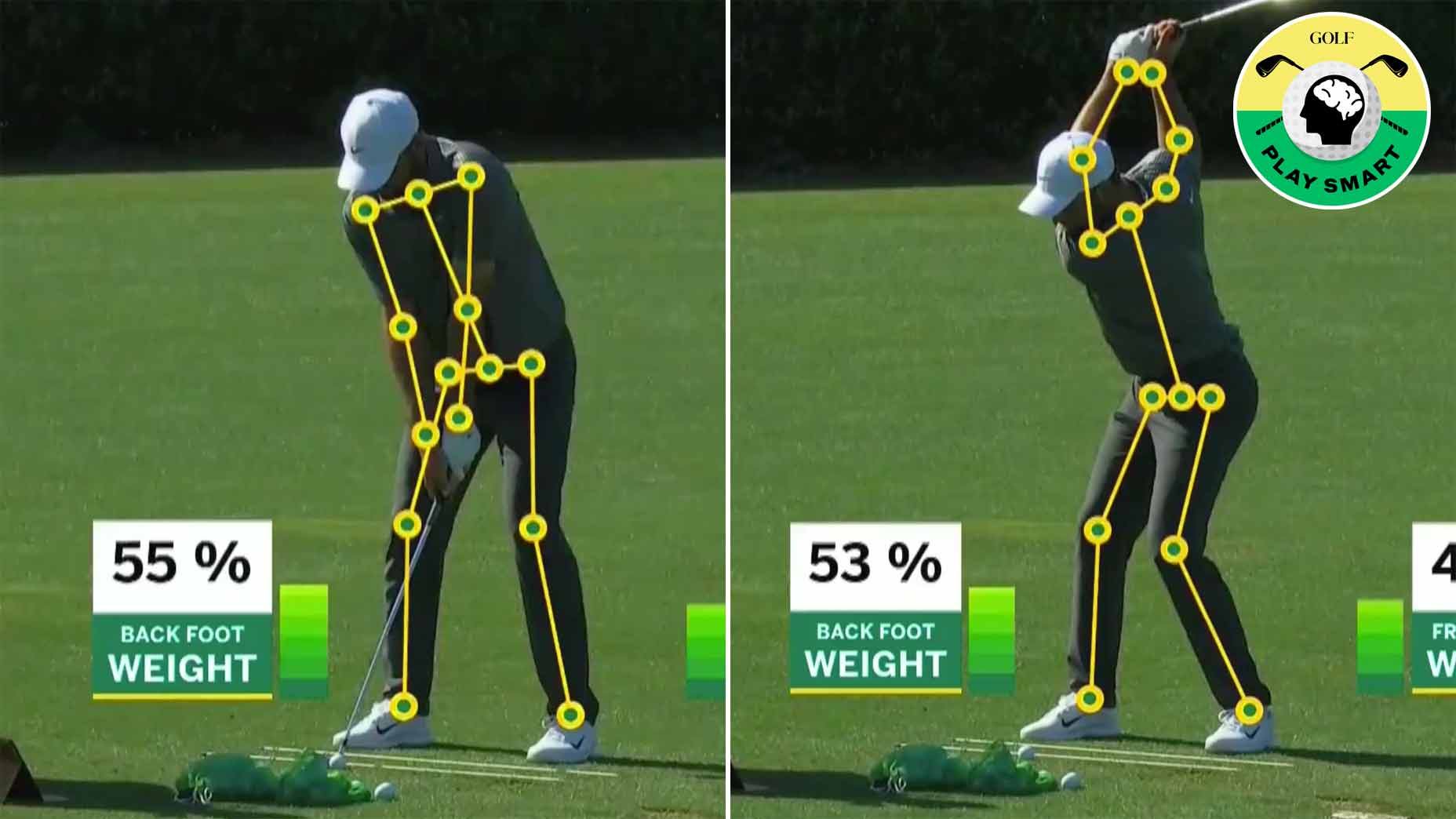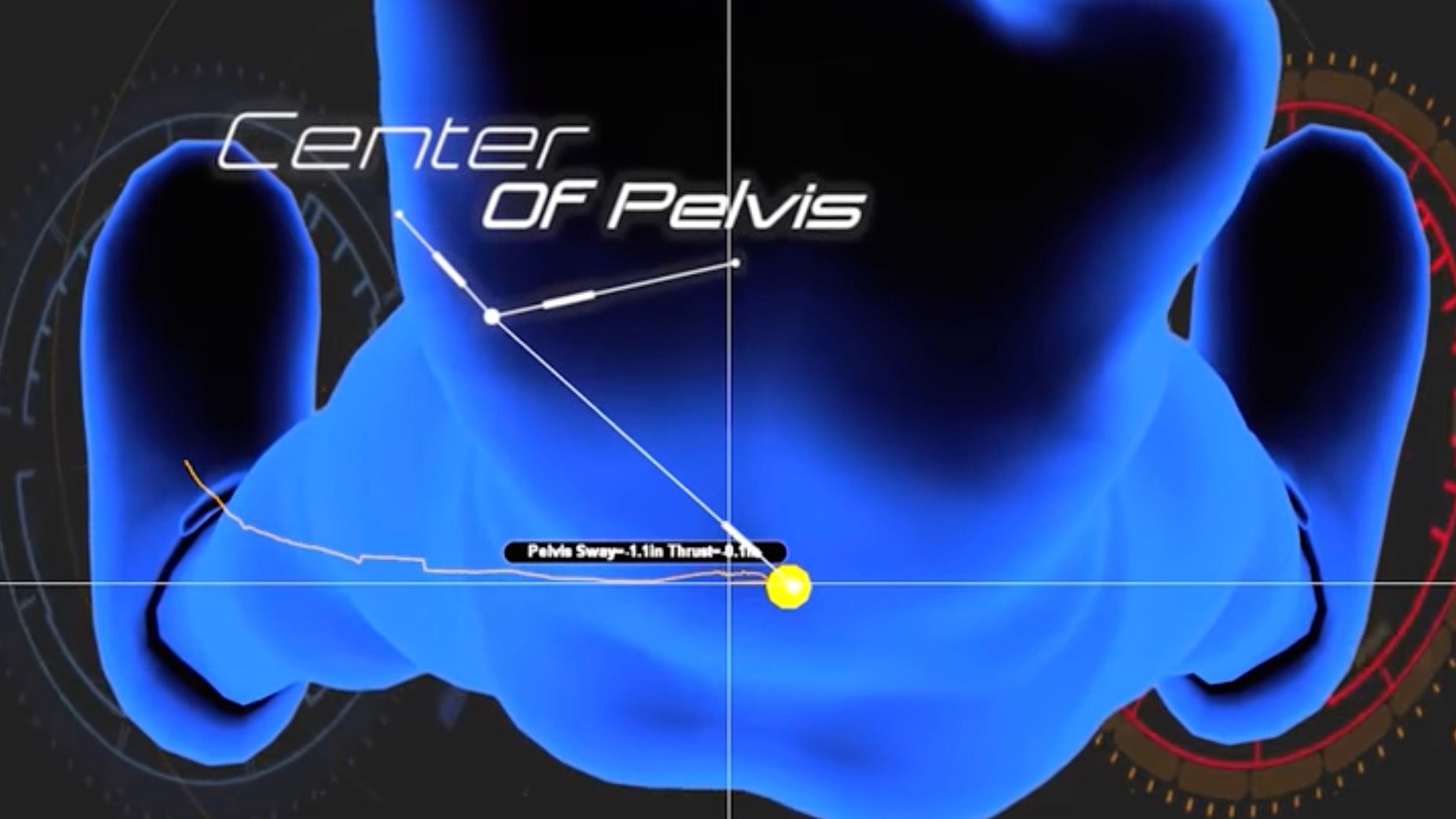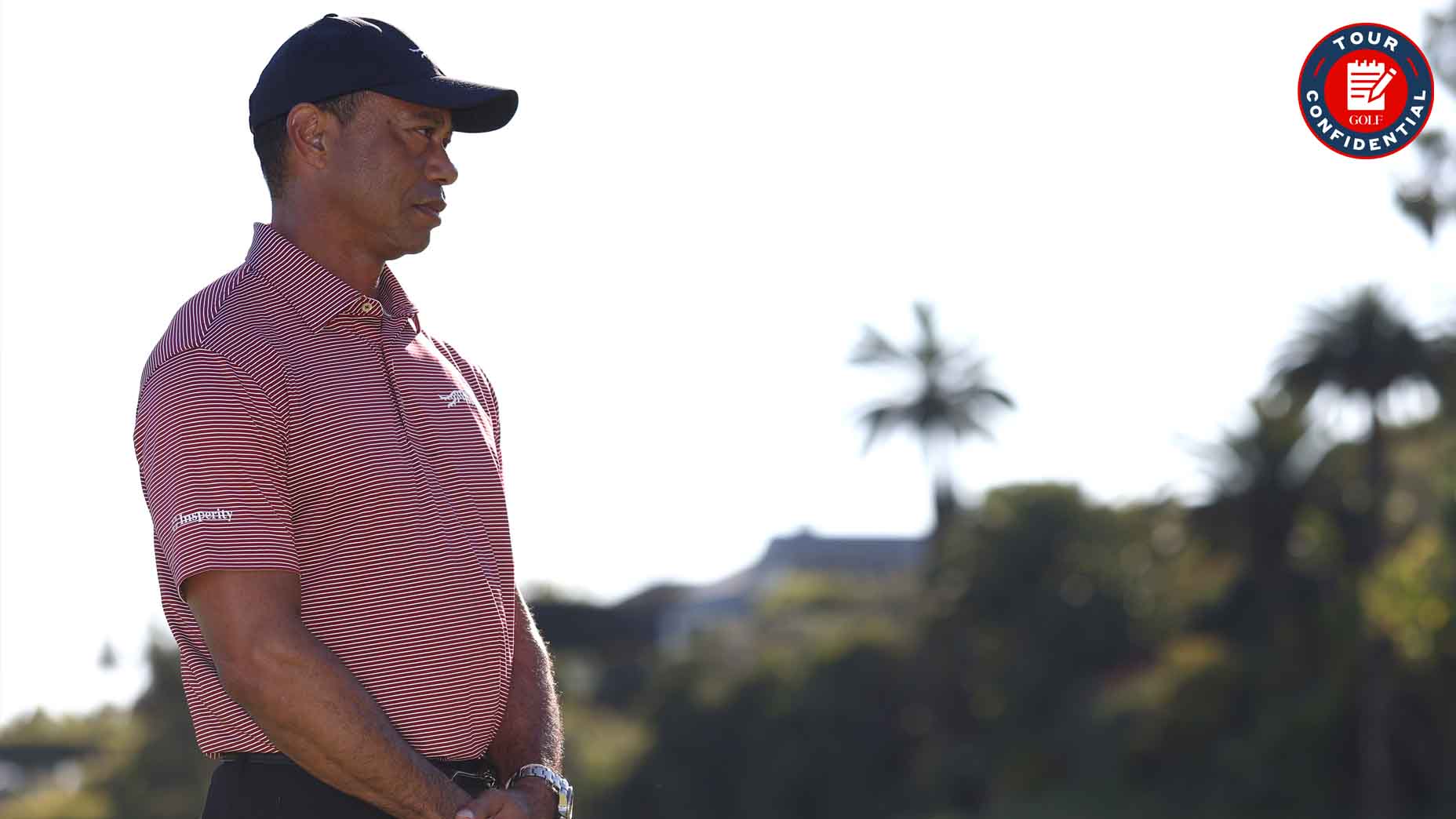Welcome to Play Smart, a regular GOLF.com game-improvement column that will help you play smarter, better golf.
Golf swings are like snowflakes — no two are exactly the same. But that doesn’t mean there aren’t commonalities. Even with the swings looking different, there are still qualities that all great golf swings have in common.
One of these commonalities is how the body weight is distributed and shifted throughout the swing. Although the swings might look different, when looking at advanced data, you can see that the way weight is shifted is quite similar.
Ahead of the 2024 Masters, the CBS broadcast team did an excellent job capturing and breaking down this sequence of shifting weight. And thanks to GOLFTEC’s Optimotion technology, fans around the world can see this phenomenon in real time.
Breaking down the weight distribution of our World No. 1. #themasters pic.twitter.com/mSNWKWbYG5
— Golf on CBS ⛳ (@GolfonCBS) April 8, 2024
How to properly shift your weight
Scottie Scheffler might be the best player in the world, but that doesn’t mean he’s got the most prototypical swing. His wild foot action can make for some funky follow throughs, and it can make you wonder how he hits the ball as well as he does. But while the swing might look funky, he shifts his weight in much the same way that every other pro does.
As you can see in the video above, he starts the swing with his weight nearly evenly distributed between his front and back foot, and as he makes a turn back, he slowly starts to shift his weight to his trail foot. And once he gets his arms parallel to the ground, he’s got a 64-36 split in weight between his trail and lead foot.
Top 100 Teacher: 1 key move that you can see in ‘every good golf swing’By: Luke Kerr-Dineen
Believe it or not, this is the point where the most amount of weight is on his trail side. Most recreational golfers assume that you continue shifting your weight back until the top of the backswing, but as Scheffler (and other pros) illustrate, that’s not the case.
“That’s gonna be a max load on there,” says analyst Michael Breed. “A lot of people think that the full and complete weight shift happens [at the top]. He lost 11 percent of that weight distribution from the trail side.”
The act of slightly shifting your weight back to the lead side before getting to the top of the swing is called re-centering, and it’s one of the biggest separators between elite ball strikers and average joes. The act of re-centering is a crucial element of proper sequencing in the swing and helps generate power and consistency in your strikes.
“That is something that most people don’t understand thoroughly,” Breed says.
If you can get better at re-centering during your own swing, you’ll be able to shift your weight better and properly sequence your swing. This will give you better contact, more power and reliable consistency.











